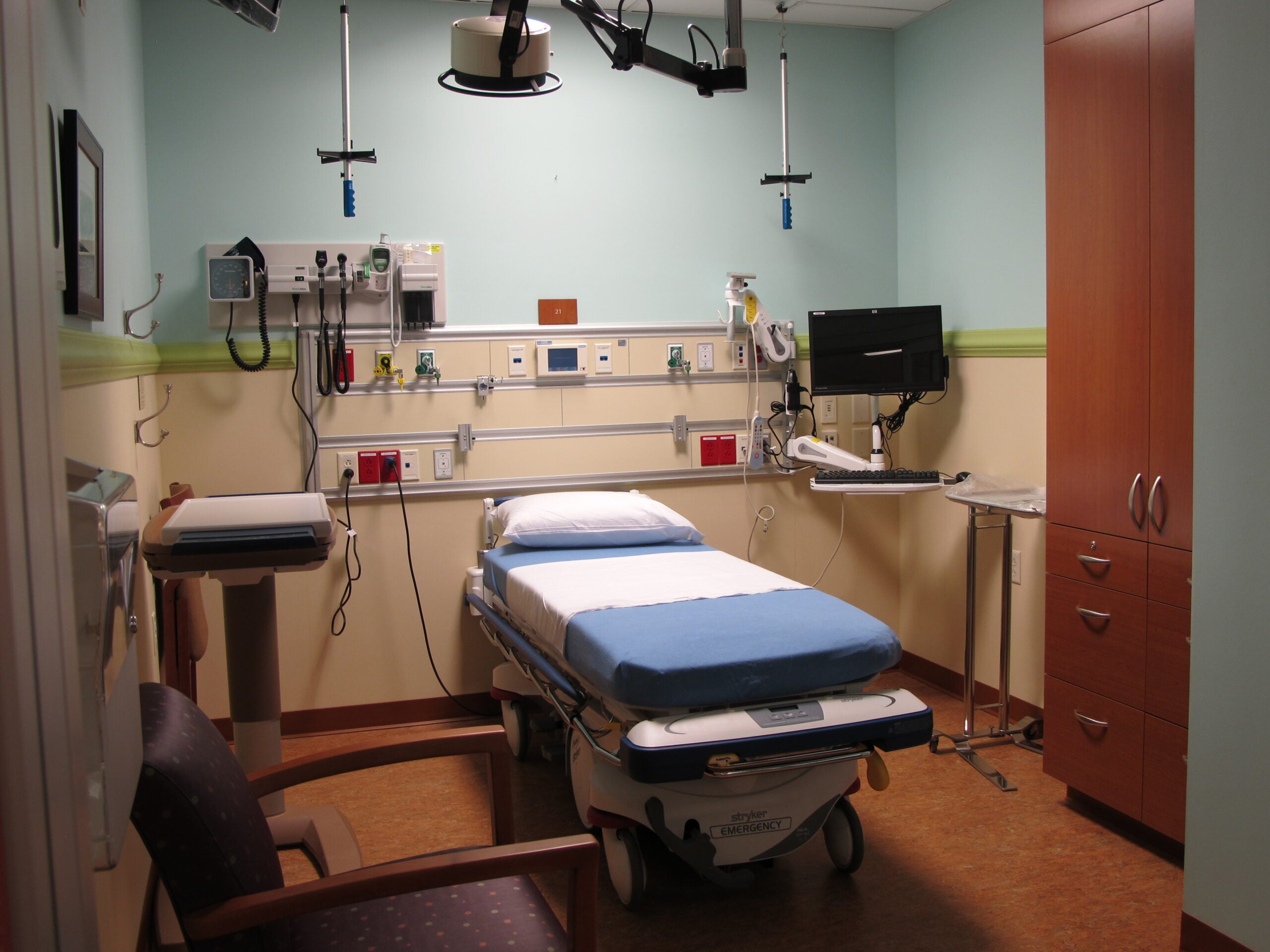Up to 4,000 Wisconsinites who were determined ineligible for Medicaid during the annual renewal process will have their coverage reinstated after federal officials identified an error in the state’s automatic renewal system.
Wisconsin is one of 30 states that reported having an error in their automatic process after the Centers for Medicaid and Medicare Services, or CMS, sent a letter to states on Aug. 30. The federal agency found some state systems “were inappropriately disenrolling children and other enrollees, even when the state had information indicating the person remained eligible.” The agency said in a press release that half a million children and families across the country were affected by the problem.
In Wisconsin, the issue affected people who are eligible at the individual level but did not receive automatic renewal due to the eligibility of someone else in their household. DHS spokesperson Jennifer Miller said in an email the issue of whether states were passively renewing at the household or individual level had not been raised during preparation for resuming annual Medicaid enrollment. After receiving guidance from CMS in August, Miller said the state agency added a temporary manual process last month to ensure eligibility is extended for affected members, which will continue indefinitely.
Stay informed on the latest news
Sign up for WPR’s email newsletter.
Miller said in the email that the agency expects to reinstate coverage for the roughly 4,000 affected members by the end of October and is providing information on how people can obtain coverage for unpaid medical bills that occurred after their disenrollment.
Even with the correction, tens of thousands of people have lost their coverage. Annual renewals for Medicaid coverage were suspended in March 2020 as part of the federal government’s response to the COVID-19 pandemic. After the federal public health emergency ended this spring, the state Department of Health Services resumed the regular yearly renewal process in June for BadgerCare Plus; Elderly, Blind, or Disabled Medicaid and other programs.
So far, state data shows coverage ended for nearly half of the people renewing their Medicaid coverage each month this summer.
Throughout June, July and August, about 50 percent of people in all Medicaid programs with renewals due had retained their coverage. Roughly 48 percent of people had seen their coverage end, with some people still waiting for their renewals to process.
In the latest data from August, just over 72,000 people were due to renew their coverage through BadgerCare Plus, which assists low-income children, pregnant people and adults. More than 35,000 of those people, or about 49 percent, were no longer eligible for the program and had their coverage ended. Almost 31,000 people, or about 42 percent, retained their coverage. More than 6,000 people were still waiting for their renewal to be processed at the end of the month.
Lorie Graff is head of the Western Region for Economic Assistance Consortium, the agency that determines Medicaid eligibility for people in eight western Wisconsin counties. She said the enrollment numbers are fluid, in large part because people have 30 days after the monthly deadline for a late renewal of their coverage. They can also ask for a back date of their coverage up to 90 days after the expiration.
“I think we’re starting to see some people who didn’t renew and then they find out that they don’t have coverage, maybe when they go to the doctor or that they go to the pharmacy,” Graff said. “I think we expected that to happen.”
The DHS website states that the agency will update each month’s enrollment numbers for three months after they’re initially posted to reflect these late renewals.
‘Don’t assume’ you aren’t covered
Justin Rivas, program director for the Milwaukee Enrollment Network, said building awareness about the annual renewals has been a major issue in his region as well.
“A lot of these folks have never had to reapply for Medicaid before because they basically just picked it up through the pandemic,” Rivas said. “They weren’t used to the annual process of renewal. And in states like Wisconsin, where we are trending this out over months, it means that there’s not one fixed deadline that everyone has to meet. So it’s hard to communicate that at a community-wide level.”
Rivas said this gradual enrollment will also speed up starting in 2024, with an increased number of people scheduled to renew each month. He said that means current trends in how many people are retaining coverage may not continue as the process evolves.
To renew their coverage, Graff said people need to update their information, like income and number of household members, online or by phone. If someone is no longer eligible for Medicaid, she said they can send the information to a health insurance navigator who can help the person find a plan on the federal Health Insurance Marketplace.
Graff said there may be people who have let their coverage expire because they assume they aren’t eligible anymore. But she said officials are encouraging people to not jump to conclusions about whether they can retain their coverage.
“Please renew anyway,” Graff said. “We have some extensions, so if people go over income in certain circumstances, they’re eligible for extensions for 12 months. We really just want to make sure that they’re not eligible. So ‘don’t assume’ is what we’re telling people.”
Graff said after the yearlong renewal process — what federal health officials call “Medicaid unwinding” — Wisconsin officials expect to have roughly the same number of residents receiving coverage as prior to the pandemic, around 1.2 million people. The total has risen steadily under the continuous enrollment policy and peaked in May at almost 1.7 million people.
Nearly 69,000 people lost coverage at the end of May. The DHS website said these people’s eligibility had previously expired through the state’s enrollment system, but they were able to retain coverage under the pandemic-era federal rules. These people had the chance to reapply for Medicaid coverage, but could not renew through the typical process.
As of the end of August, total enrollment had fallen to 1.5 million.
Laura Dague researches health economics at Texas A&M University and has studied Wisconsin’s Medicaid program through collaboration with the University of Wisconsin-Madison’s Institute for Research on Poverty. Dague said the Medicaid enrollment data doesn’t show how many people whose coverage is ending are ending up uninsured.
“There’s not really a good way to know, did this person who had Medicaid enroll in an employer-sponsored plan or the marketplace, without looking at a large-scale survey asking them,” she said. “Those kinds of efforts are definitely happening… But unfortunately, just from these reports, we don’t know what’s happening to people other than that they’re losing Medicaid.”
She said many people receive Medicaid coverage because of a temporary situation, such as pregnancy or job loss. While they were eligible at the time they applied, those conditions may have changed or they may be able to access insurance they couldn’t before.
“If they are not eligible for Medicaid now, they should be able to get pretty generous subsidies to buy an insurance plan on federal marketplaces, if they can find their way there,” Dague said. “Those subsidies are much more generous than they were prior to the pandemic. So if it’s been a while since somebody looked at what a plan my cost them, they should definitely take a second look.”
Rivas said public health leaders across Wisconsin are waiting to see how Marketplace enrollment will change this year after the upcoming enrollment period ends next January.
“We don’t want to have a growing coverage gap for a lot of reasons,” he said. “We don’t want people to not be able to access the primary care that need on the health insurance side, but also want to avoid any kind of economic challenges associated with medical debt or uncompensated care.”
Wisconsin Public Radio, © Copyright 2025, Board of Regents of the University of Wisconsin System and Wisconsin Educational Communications Board.






